Irish Wolfhound Breed Character and Home Life
First and foremost, though frequently referred to as ‘gentle giant,’ the wolfhound is a HUNTER. This is an ancient breed whose origins are truly lost in antiquity and whose function was to hunt by sight, therefore, he is called a sighthound. More importantly, he belongs to an exclusive genre of sighthounds we refer to as ‘greyhound-like.’ This genre consists of Irish Wolfhounds, Greyhounds, Scottish Deerhounds, Borzoi, and Whippets and all are considered galloping hounds or Gaze Hounds.
All sighthounds are hunters, plain and simple. Let no one dissuade you of this fact.

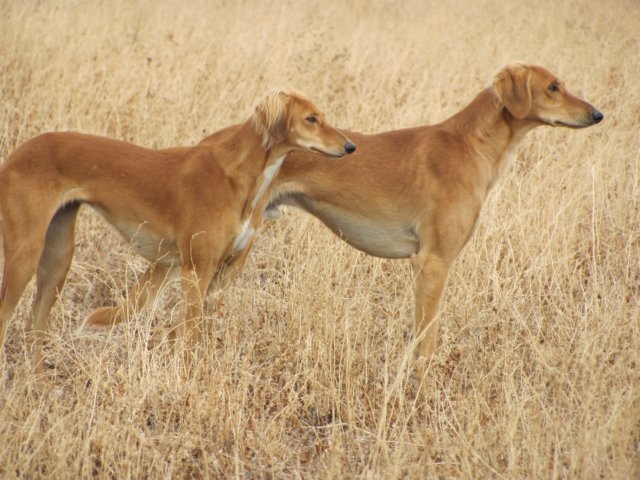


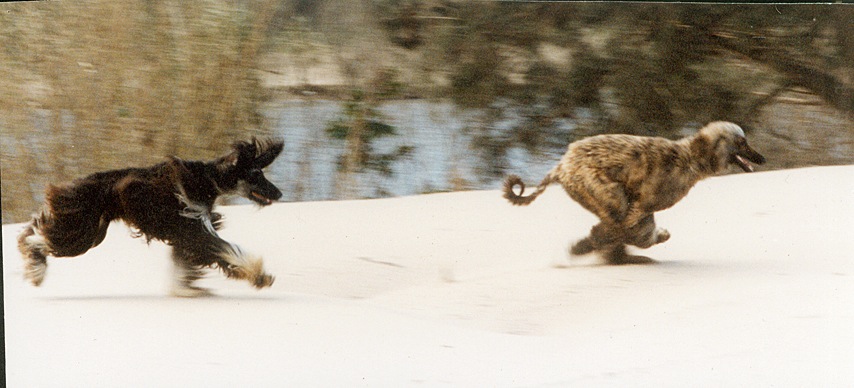
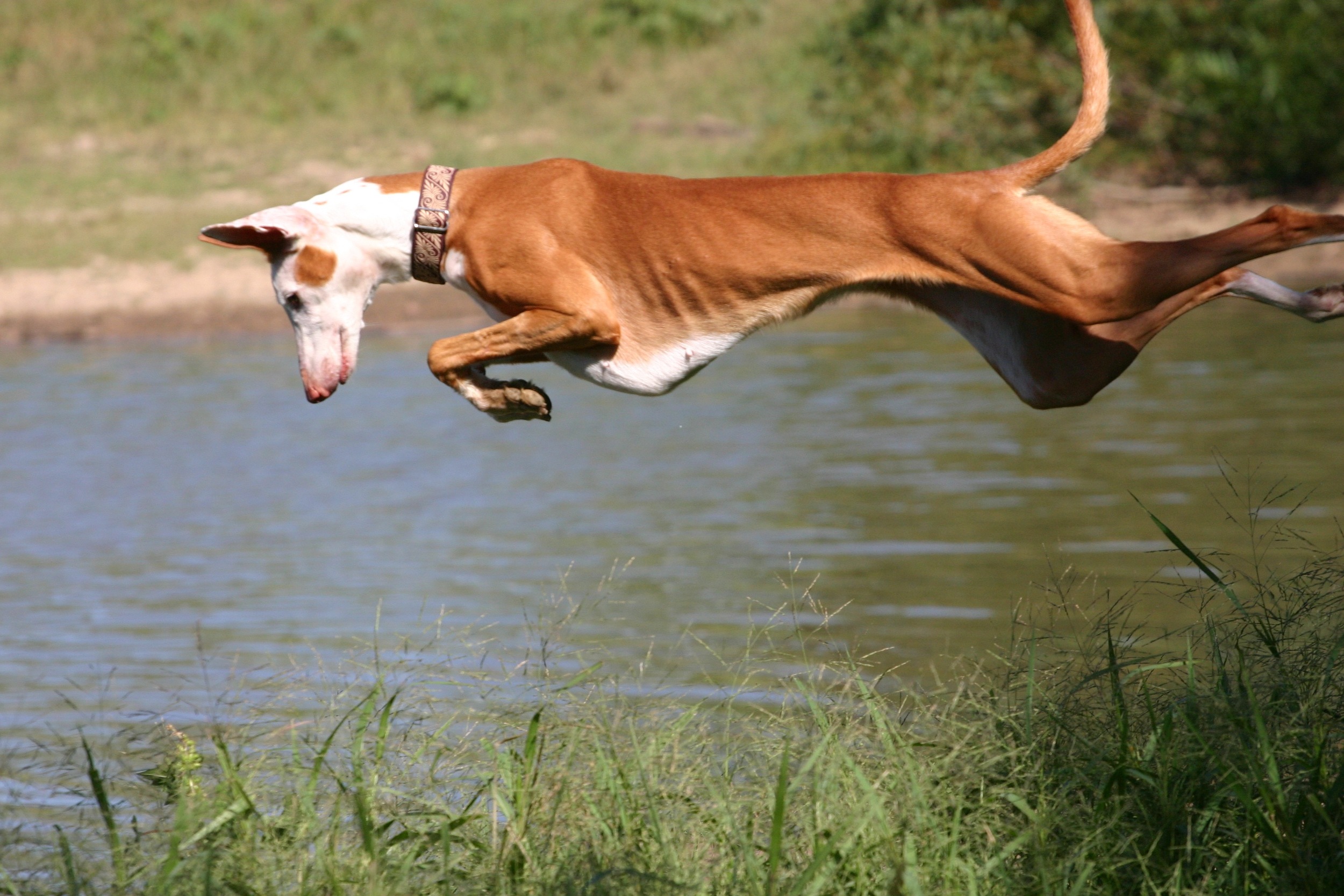



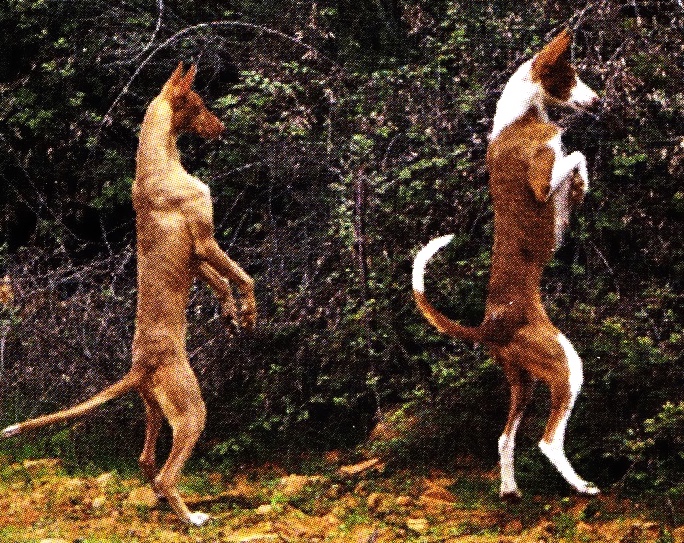

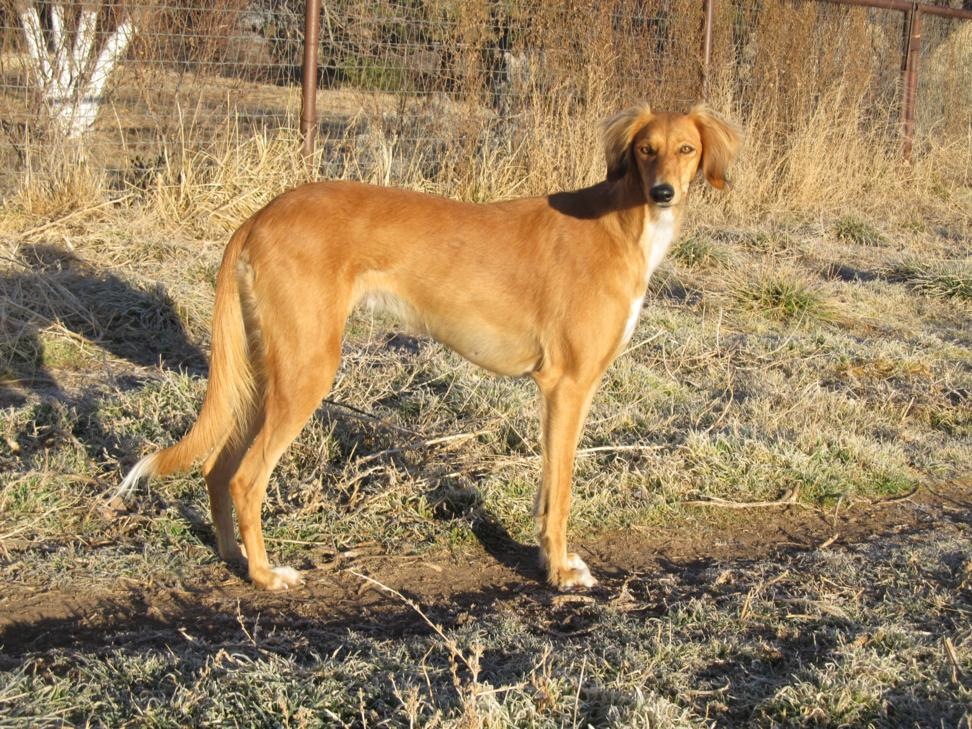
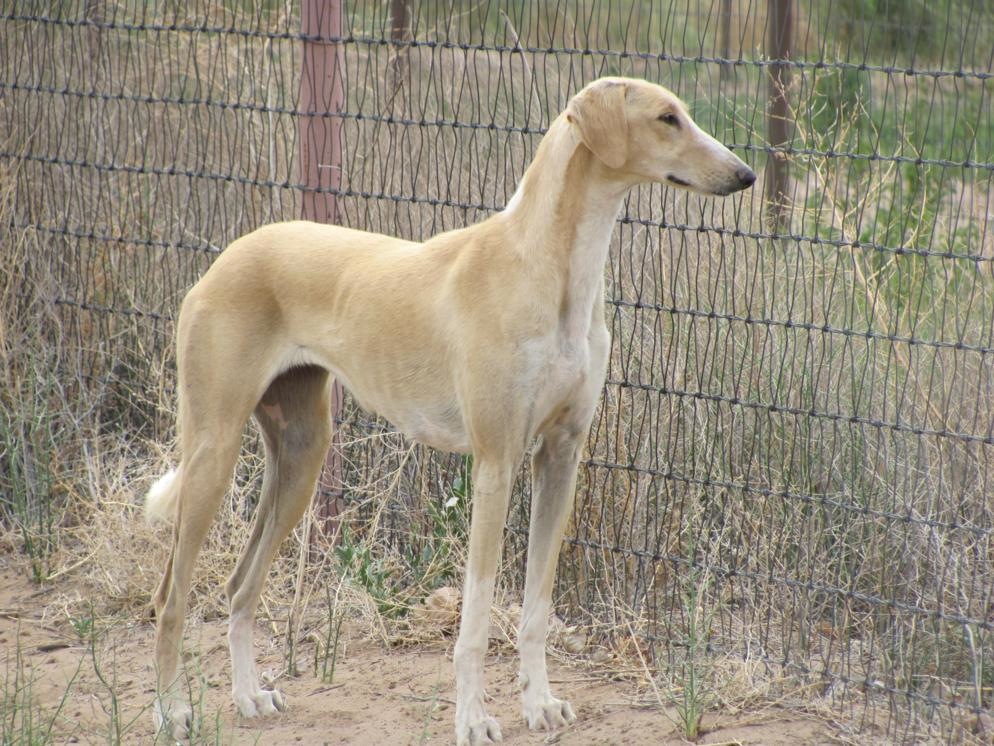
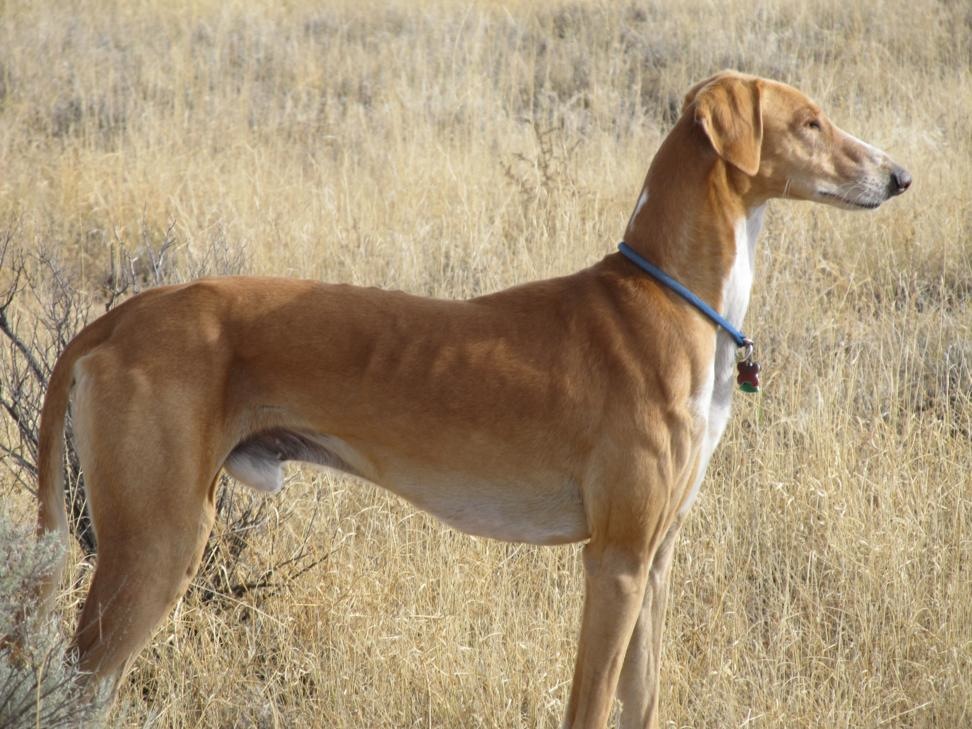
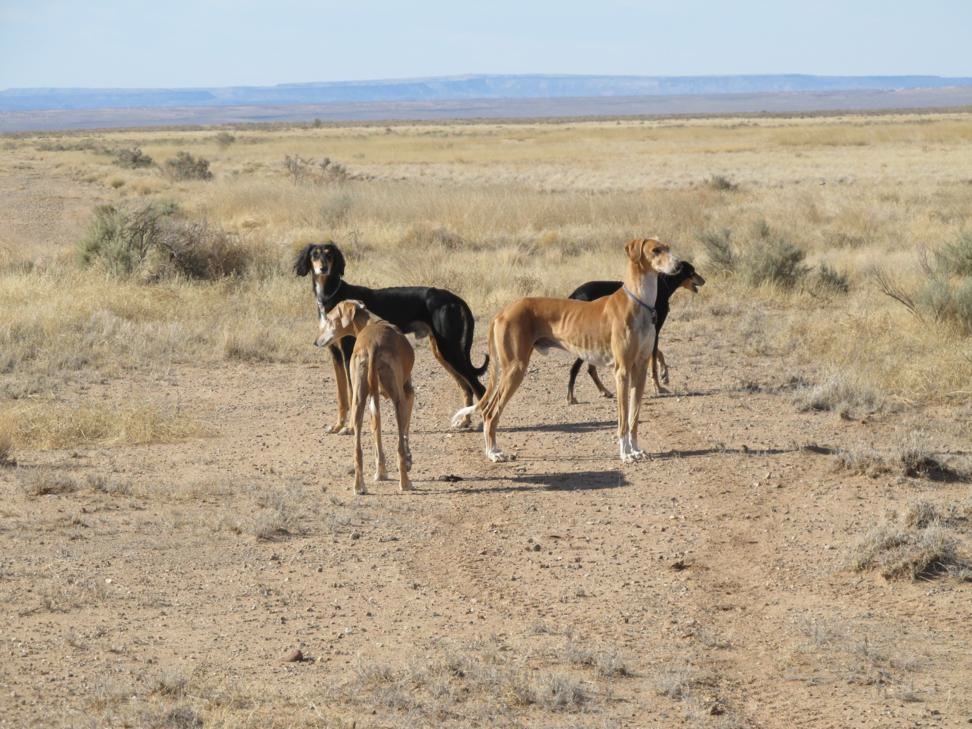
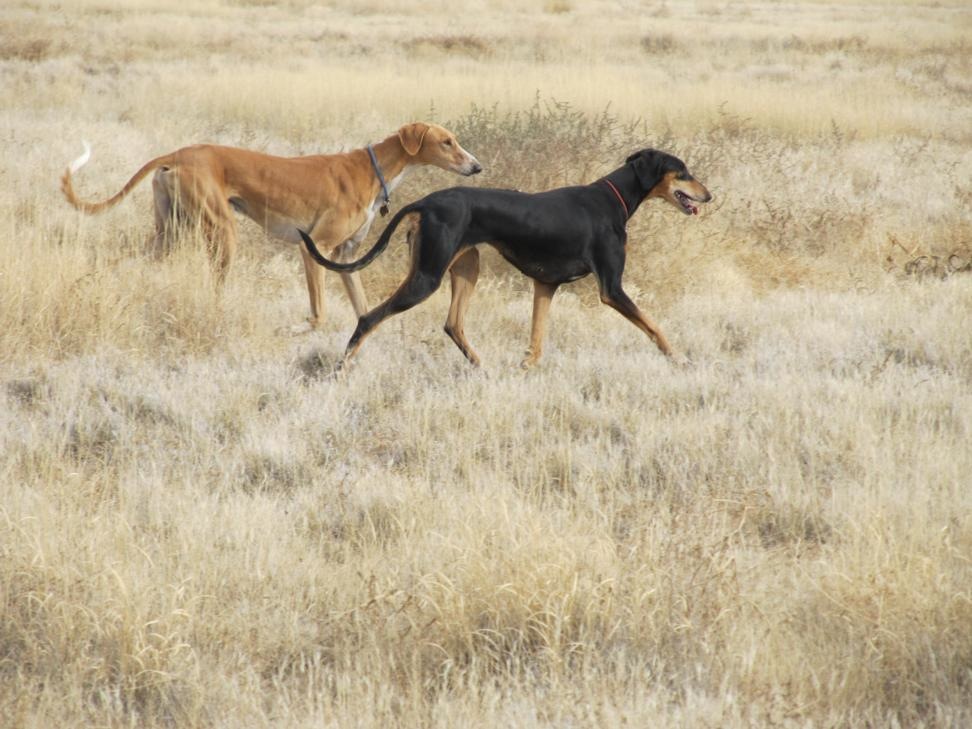
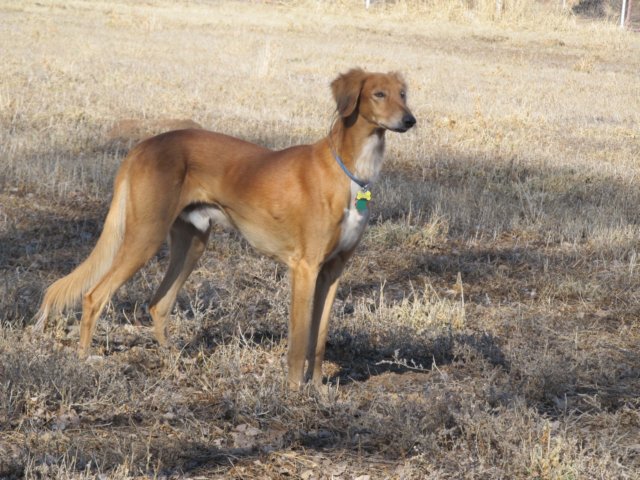
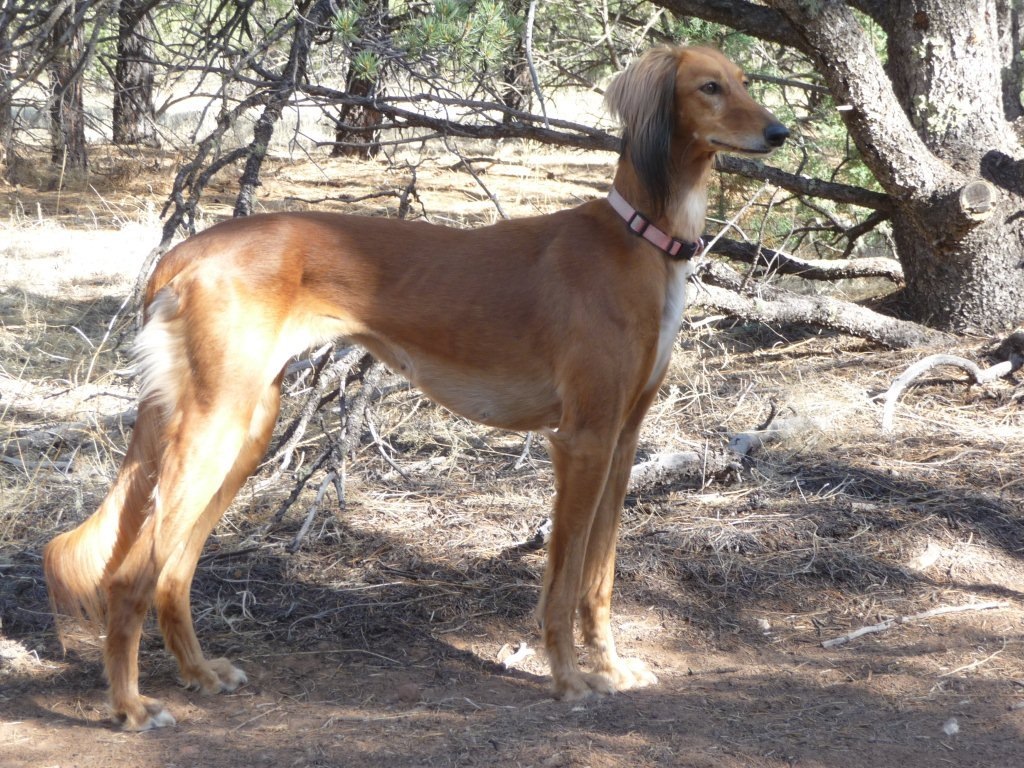
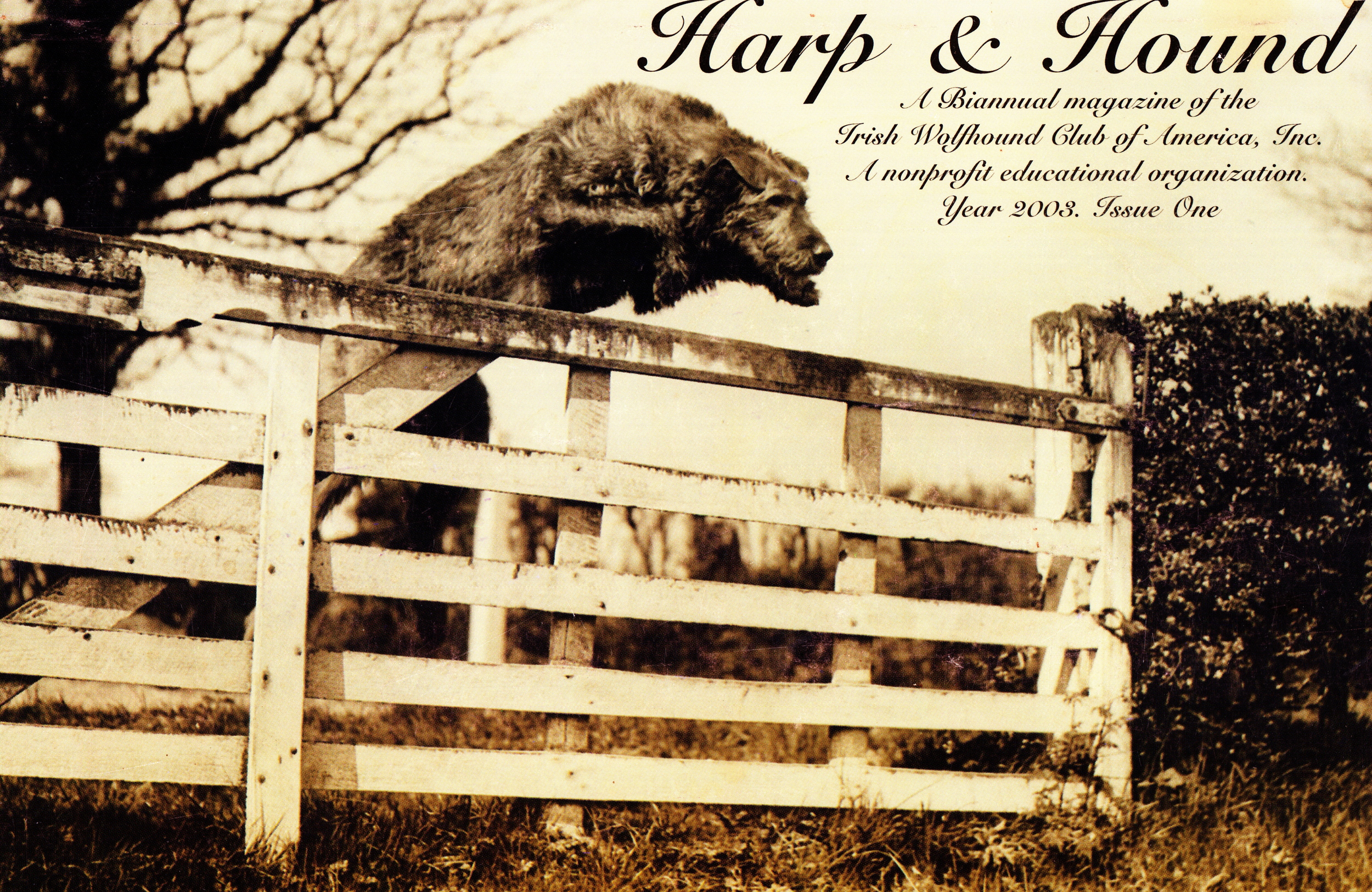


The Irish Wolfhound typically has a strong prey drive which has been ‘hard-wired’ into their disposition for millennium.
What is prey drive instinct? Fundamentally, the essence of an instinct is any performed behavior that is not based on prior learning. Hard-wired prey drive is an inborn complex behavior and most sighthound breeds, many with origins dating one or more millennium, once specialized in independent hunting and dispatching of Game. Indeed, this inherent ability is still well and strong today.
A new owner must accept this inherent trait as it is a component of the Wolfhound's noble heritage and it must be respected, at all times. As a hunter, they will give chase to deer, and other game such as ground hogs, squirrels, hares, rabbits and more. Some may be okay with cats and other Wolfhounds may not. Regardless of their upbringing, a wolfhound’s instincts may surprise you one day. In spite of their supposed disinterest or trustworthiness over the years towards other small creatures or large game, any such surprise may have very unpleasant consequences. The responsibility lies solely with the owner, and not the hound.
Please take this opportunity to read two of my Dog Blog Posts titled, "Sighthound Necessities" and "Truth or Consequences" as the former discusses the legitimate needs of a giant sighthound and the latter, a valid, very real scenario that a novice or inexperienced Irish Wolfhound owner may encounter.
Despite the tendency to anthropomorphize (the attribution of human behavior to an animal) the wolfhound is a domesticated animal whose function was to hunt game, large and small. Strong prey drive necessitates potential owners to understand that a wolfhound is not a couch potato or a meek, toothless giant. Many refer to them as “Wolfies,” however, this is a disrespectful and derogatory term. Most Irish Wolfhounds will demonstrate at one time or another a keenness to dispatch prey or at least, to gallop and give chase. The wolfhound's instinct to give chase will depend on the individual. Some have a more developed prey drive and others who appear completely disinterested. It bears repeating that on occasions, such appearance is deceptive as many wolfhounds give the impression they are incurious with a situation or interaction. If you are not a dog authority whose expertise is reading dog posture or body language then suffice to say, you, like many other fanciers over the years, may learn the hard way that this is not the case. There are a number of uneducated, unforthcoming or ignorant breeders who do not enlighten potential puppy owners of these facts. Moreover, there are even fanciers who have posted one or more photos of their wolfhound curled up with a Fawn or a Doe as evidence of their wolfhound’s gentle nature towards all living creatures. Some use these opportunities to market their wolfhound breeding program to all environments and habitats, including apartment dwelling and city living.
Reputable, dedicated breeders must address these countless misconceptions that are regularly disseminated by casual fanciers about the Irish Wolfhound breed.
Such a lofty responsibility falls upon us in order to protect, as best as we can, the health, happiness. and fortune of the breed. We educate potential homes about the very real realities of living with such a noble, giant hound.
Two breed personality tidbits:
- Irish Wolfhounds love to dig. They love to dig huge, massive holes in your yard so if you have prim and proper landscaping, this is not a breed for you. It would be as ridiculous as a showcase home with white carpeting and expecting to have an Irish Wolfhound living within it. I'll never forget a fellow breeder who told us a story about one of his wolfhounds who while in the yard, dug a hole so deep that all he saw was her tail sticking up out of the hole!
- Be prepared that Irish Wolfhounds love to howl and vocalize loudly. They will bark at strangers but most certainly are not watchdogs. However, this breed likes to howl, similar to a wolf, for many reasons. If you have taken the time to visit a kennel or attended an Irish Wolfhound Specialty Show, you must have heard a wolfhound chorus. So, if you are sensitive to the occasional clamor and do not want a breed that makes noise, then you should reconsider getting this breed.
For those who are employed and or are out of the home for extended periods or work long hours, the Irish Wolfhound is not the breed for you. The Irish Wolfhound is not a breed that can sit alone for 10 hours without interaction with their human companions. As puppies, up until approximately six months of age, they require multiple meals throughout the day. Additionally, crating a wolfhound for such extended periods is tortuous easily likened to being a prisoner in jail with short breaks outside a cell, except that a wolfhound has not done any wrongdoing nor deserves such treatment. They are a breed that requires human interaction and bonding. Indeed, the relationships between the hounds and their owners are close, very close. They keep a close eye on their Masters, such as when an owner goes to the bathroom, the hound gets up and goes with them. Mostly, when you get up, they get up, even if it is only going into the kitchen. They simply LOVE people and must be with them as often as possible.
For busy families and those people working long hours, today there is a modern solution in puppy daycare centers. Although a great idea for the majority of large and small breeds, the wolfhound is not a candidate. As puppies, the potential for injury while romping around with playmates in a play yard or daycare is too great and once a wolfhound pup is injured, it can be extraordinarily expensive to relieve or cure. Nearly all seasoned, reputable wolfhound breeders would not allow a wolfhound puppy to run and play with a group of other puppies or dogs. As I stated in my Expenses discussion, if an injury occurs prior to the growth plates closing, it can be especially serious. Almost all orthopedic surgery is very, very expensive requiring the skilled expertise of a Board Certified Surgeon. A specialist is absolutely necessary and after thirty-two years of experience, I would NOT allow my general practitioner to perform orthopedic surgery on my hounds, despite all of my veterinarian's excellent qualifications. Nor would they make a request of me to do so. Keep in mind that surgery is not always successful and a young wolfhound pup could face being handicapped for the remainder of his life, in addition to having to take drugs and chemicals to relieve reoccurring pain.
Stoic, sensitive, even-tempered, soft, laid-back, dignified, forgiving, courageous, humble, fierce are just a few adjectives used to describe the Irish Wolfhound personality.
They typically adore children and are marvelous house dogs though their tails can and will sweep off picture frames, coasters, books, decorative items from low-lying tables. We also describe them as ‘counter surfers’ as their height permits perfect access to kitchen counter tops and the feasts that lie all within easy reach. Their chins are at perfect height for resting on the counter. Beware the surf and swipe, particularly roast beef, chickens, or even pies! This sighthound requires people to make many lifestyle changes.
Allow me to add two other important considerations before obtaining an Irish Wolfhound:
Your physical fitness and your age.
Even though the Irish Wolfhound is a gentle hound who cherishes his or her humans; this giant breed can unintentionally, of course, hurt someone who is unfit or who is older. Wolfhounds frequently and fondly hip-check people and if you are in an unstable stance or footing, you can and will fall -- no matter your age. We all walk around on nearly a daily basis with bruises! So, keep this in mind if you have children that can and will go flying if your Wolfhound whirls around. Another fact: Irish Wolfhounds are also 'leaners' -- they love to lean on and push you with their weight while you pet or stroke them. To illustrate, one of my dog caretakers who is a physically fit person and also experienced with livestock, particularly heifers, was recently knocked to the floor by one of my wolfhounds. The hound was leaning on her while she petted him and he quickly whirled around accidentally knocking her legs right out from under her.
Falls happen frequently, and it can hurt. I do not know one Wolfhound breeder who, at one time or another, has not been accidentally injured by their wolfhound(s). For example, one of my young females accidentally hit me in the face with her paw nearly dislocating my jaw. From the time immemorial Wolfhound owners are prepared for one type of injury or another. I love this revealing and amusing excerpt from an interview in Sports Illustrated magazine in the February 14, 1966 issue titled, "THE BIGGEST DOG OF ALL WAS FINN MacCOOL'S AUNT"
"A fully grown male stands three feet high at the shoulders on all fours, and when he rears up on his hind legs he reaches 6 feet 6. A wolfhound puppy grows faster than a lion, and fond owners must get used to some pretty hefty roughhousing. Wolfhounds, young or old, are frolicsome creatures, and in a gay mood, they can flatten an owner with one joyous bound. Department store heir Tom Wanamaker, who raises Wolfhounds in Ridgefield, Conn., has been pushed to the floor on any number of occasions and once even required medical treatment. "Yes," says Wanamaker, "I've been knocked down, but always with love, always with love." Wolfhound owners are used to having their eyes blackened and their lamps, vases and objets d'art demolished by wagging tails. In wolfhound homes it is not uncommon to see a dog that has been lying under a table carry the table away on its back when it rises to leave the room."
As I put aside the geniality and lightheartedness of the topic, such injuries can be especially concerning when involving an older person. I have a yearling wolfhound placed with a trim 67-year-old woman who is experienced with horses. She was walking the young male on a lead out to a paddock when he got excited and decided to run. She was unprepared for the dash, and he took her off her feet dragging her some way. Her injuries included a broken collarbone and three ribs that took several months of recovery only to discover several months after healing that she had undetected internal bleeding requiring her to have transfusions. Thankfully, she has a housekeeper to help her care for the two Wolfhounds while she recuperated. If you are an older person or someone who is not adept or physically capable of handling a giant hound weighing 145--180 pounds, then you must ask yourself if this is a wise decision.
Households & Home Life
If you have a very busy household with kids and lots of hustle and bustle, a wolfhound is not a practical option. Though they adore children, their size, as well as sensitive personality and necessary maintenance, precludes them as ideal candidates. We regularly advise our new owners to minimize the amount of stress a wolfhound is exposed to and always caution against feeding a wolfhound while he is overly excited. This may prove to be too tall an order in a lively, hubbub environment (Please review nutrition and also health issues section.) If you are one of these people I recommend this post by the American Kennel Club on this very subject. I preface this list by saying that I do not agree with the inclusion of the Greyhound as overall they are very sensitive, quiet hounds when they are not hunting.
Here are several more interesting suggestions for the average person researching the ideal breed for their lifestyle.
- Best Family Dogs. This page discusses some excellent suggestions for families. Dogs you can bring with you just about anywhere!
- Best Dog Breeds for Apartment Dwellers. This page has obvious recommendations for smaller dogs but several you may not have thought of before. However, one inclusion I completely disagree with is the Greyhound. I am a traditionalist when it comes to sighthounds, and this breed needs to run in securely fenced acreage for good health and spirit.
- Best Dogs For Kids. Several obvious breeds appear here that are "no-brainers", however, a few of these are extremely popular and widely bred. As such, great care should be taken when researching a breeder for quality temperament and health. Bear in mind, though almost all Irish Wolfhounds love children, their size can be off-putting for some Moms. Think of it as a colt with your baby! An Irish Wolfhound will not intentionally harm the baby or toddler but may accidentally step on its young charge or even when older, play more roughly than smaller breeds.
- Best Guard Dogs. Irish Wolfhounds are NOT Guard Dogs. They will alert you to the presence of a stranger, but their temperaments fashioned over millennium are for hunting game, not people. They are never intended nor would it be safe for any protection training. They are far too kind, caring and devoted to humans.
- Hypoallergenic Dogs. Well, straight up there is NO SUCH THING as a 100% hypoallergenic dog no matter what the designer commercial dog breeders inform you. Period: no if's, and's, or but's. Keep in mind many of these people make a great deal of money putting together two breeds and calling them Labradoodles, etcetera. Most will tell you anything you want to hear. Be educated -- there are a number of breeds that produce less dander than others. Therefore, they produce fewer allergens that make a sensitive person sneeze.
Any questions, feel free to contact me. Simply, click on the envelope icon below in the footer of this page to send me an email. I am usually very prompt in replying.
